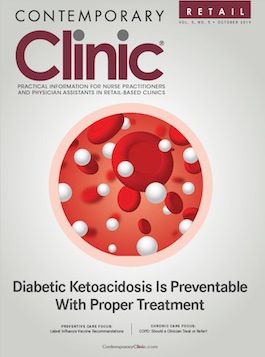Knock Out Aches and Pains From Cold
The symptoms associated with colds, most commonly congestion, coughing, sneezing, and sore throats, are the body's response when a virus exerts its effects on the immune system. Cold symptoms peak at about 1 to 2 days and last 7 to 10 days but can last up to 3 weeks.
Katarzyna LaLicata, MSN, FNP-C, FNP-BC, is a nurse practitioner at CVS MinuteClinic and an associate clinical assistant professor at National University in San Diego, California.
The common cold is a viral infection that affects the upper respiratory system and can sometimes include mild aches and pain, though those are more common with the flu.
The symptoms associated with colds, most commonly congestion, coughing, sneezing, and sore throats, are the body's response when a virus exerts its effects on the immune system. Cold symptoms peak at about 1 to 2 days and last 7 to 10 days but can last up to 3 weeks.1Cold symptoms come on gradually with slight aches accompanied by fatigue.2Fever and headache are rare symptoms associated with the common cold.1,2However, children may experience fever.1,2Rhinovirus is the most common underlying cause of the common cold.3Other pathogens include coronavirus, influenza, metapneumovirus, and parainfluenza respiratory syncytial virus, and.3Treatment for the common cold includes adequate fluid intake, handwashing, and rest.
OTC medications can help relieve symptoms, especially mild aches. Analgesics and antipyretics can be used, including acetaminophen, aspirin, and naproxen.3Acetaminophen is recommended for the management of fever and pain in both adults and children.3Nonsteroidal anti-inflammatory drugs (NSAIDs) help reduce discomfort associated with a cold, but should be used cautiously.3Serious adverse reactions can occur with the use of NSAIDs, such as ibuprofen, including, but not limited to, gastrointestinal bleeding, gastrointestinal perforation or ulcer, myocardial infarction, nephrotoxicity, and stroke.4Aspirin may be used to manage fever and pain for adults but should not be used for those younger than 18 years, because of the risk of Reye syndrome in adolescents and children.3Patients' with liver disease or impairment should speak to their providers prior to taking acetaminophen for the management of fever and/or pain.
OTC cold and cough preparations include acetaminophen or NSAIDS as an ingredient for the management of aches and pains. Counsel patients not to exceed the recommended dose of any medication used for the treatment of aches and pains. Tell them to take just 1 medication with the same kind of active ingredient (acetaminophen or NSAIDS) at a time by reviewing the ingredients section on the back of the label,5and to speak to a health care professional to ensure safety. Patients should know that in case of accidental overdose, it is imperative to get medical help right away or contact the Poison Control Center at 1-800-222-1222.6
Patients who do not feel better in 10 to 14 days or who develop chest pain, confusion, headache, a high fever, one that lasts 5 days or more or returns after a fever-free period, rash, severe sore throat or whole body aches, shortness of breath, sinus pain, or wheezing, should see a physician right away, as these may be signs of a serious infection.7,8
It is imperative to seek immediate medical attention for any fever of at least 100.4F (38C) in newborns up to 12 weeks of age, cough, ear pain, extreme fussiness, headache, lack of appetite, a rising fever or one that lasts more than 2 days of any age, unusual drowsiness, wheezing, or worsening symptoms.8
Conclusion
Meticulous handwashing is the best bet for preventing the common cold. The common cold is self-limiting, and antibiotics are not recommended. Treatment focus, including for aches and pains, is limited to comfort measures and symptom management.
References
1. Allan GM, Arroll B. Prevention and treatment of the common cold: making sense of the evidence.CMAJ. 2014;186(3):190-199. doi: 10.1503/cmaj.121442.
3. Common cold. Epocrates website. online.epocrates.com/diseases/252/Common-cold. Updated March 22, 2019. Accessed September 12, 2019.
4. Ibuprofen. Epocrates website. online.epocrates.com/u/10a234/ibuprofen. Accessed September 12, 2019.

